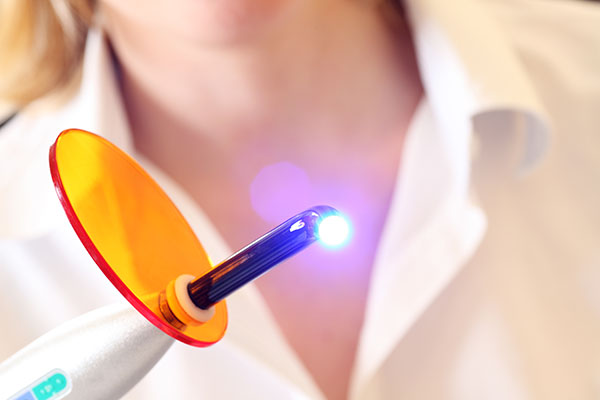3 FAQs About Laser Dentist

You have heard that there is a laser dentist near you, but you are not quite sure what that means. Get the answers to some frequently asked questions, so you will understand laser dentistry. Then you will know if you are a good fit for a laser dentistry procedure.
Laser dentistry FAQs
People have lots of questions about laser dentistry. Find out how it works, if it hurts and what procedures are available with laser dentistry.
1. What is laser dentistry?
Dentists use lasers to remove or manipulate gum tissue and cut through teeth and can do more with laser dentistry overall. A laser dentist relies on lasers instead of scalpels and drills. The lasers do much of what scalpels and drills can do without all the side effects. Dentists like lasers because the beams of light are easy to control. This allows them to treat the area while avoiding healthy tissue.
2. Does laser dentistry hurt?
Pain at the dentist office is a serious concern for many people. The idea of scalpels and drills makes many people cringe. That is one reason so many people now choose laser dentistry. This is often referred to as painless dentistry and it alleviates dental anxiety.
Since dentists do not use scalpels and drills, laser dentistry is less invasive than traditional dentistry. Also, lasers numb teeth and tissue, making most procedures painless. It is so painless that most procedures do not require any anesthesia. When anesthesia is needed, it is much less than what is required for traditional procedures.
The laser also immediately cauterizes tissue. This reduces bleeding and speeds up the recovery time. In fact, many people report that the recovery from a laser dentistry procedure is also painless. People do not go home with stitches when lasers are used. They also do not experience the uncomfortable side effects that come with drills and scalpels.
3. What procedures can a laser dentist do?
Dentists use lasers for a large number of procedures. Many use lasers for fillings. Lasers quickly remove the decay and prepare the tooth. Then dentists add the filling material, and the patient goes home without any anesthesia-related numbness. Also, because lasers provide more control than scalpels and drills do, dentists can keep the healthy tooth structure in place when removing decay.
Lasers are also used for crowns, root canals and periodontal treatments. These beams of light can even improve a gummy smile. Dentists simply manipulate the gum tissue to improve the appearance of the gumline.
Also, dentists often use lasers for teeth whitening procedures. The lasers accelerate the whitening process, so people do not have to spend nearly as much time in the dentist’s office. When lasers are used, the entire teeth whitening process can be finished in half an hour.
Do you want to visit a laser dentist?
It is no wonder that so many people prefer laser dentistry over traditional dentistry. Lasers replace scalpels and drills and provide a painless experience at the dentist. You can also get various procedures done with a laser, such as fillings, crowns, root canals and teeth whitening. Reach out to a dentist to find out more about laser treatments.
Request an appointment here: https://www.dentistofvisalia.com or call Visalia Care Dental at (559) 975-1213 for an appointment in our Visalia office.
Check out what others are saying about our services on Yelp: Read our Yelp reviews.
Related Posts
Your teeth and gums are crucial to your overall preventative dental care. Gum disease is a severe dental problem that can lead to more than just tooth decay. If left unchecked, gum disease will eventually spread to other organs in the body and cause severe damage.Fortunately, there are many ways you can prevent gum disease…
Oral hygiene is a vital part of your preventative dental care. Achieving and maintaining good oral hygiene can be difficult, but the effort pays off in the form of healthier teeth and gums and reducing tooth decay. In this article, we'll discuss how to maintain good oral health through daily routines that help keep your…
When you visit your dentist, preventative dental care should be at the forefront of your mind. Nobody enjoys getting extra work done because of the cost and time and because it can result in some uncomfortable procedures. Cavities, gingivitis, and other diseases are preventable with the correct oral hygiene. X-rays and cleanings done at your…
Dental laminate treatments offer a minimally invasive solution for patients looking to enhance their smiles. Both dental laminates and veneers improve the appearance of teeth by covering imperfections such as discoloration, chips, and minor misalignments. While these treatments serve a similar purpose, their differences impact durability, preparation, and overall aesthetic outcomes. Understanding these distinctions can…
